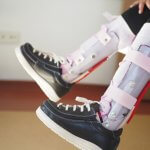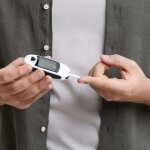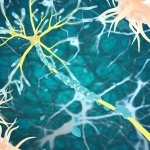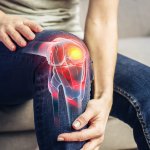A 5-year-old boy with Autism Spectrum Disorder (ASD) has made significant progress after receiving stem cell therapy using umbilical cord tissue.
Gage was diagnosed with ASD at just two years old after there were some indications that there may be a problem – repetitive and unbalanced movements, lack of eye contact and no verbal interactions.
After extensive research, Gage’s mother Renee discovered the potential of stem cell therapy for children with autism. Renee looked for trials and clinics that treat autism with mesenchymal stem cells (MSCs).
Close to his third birthday, Gage received his first stem cell therapy for autism. He received treatment consisting of an intravenous infusion of MSCs from the Wharton’s Jelly of donated umbilical cord tissue. Gage has received four stem cell treatments since then and continues to make substantial progress.
Up until the age of three, Gage had not spoken a word. However, after the stem cell therapy, he began to say new words each day. Just three weeks after the stem cell treatment, Gage told his mum “I love you so much” for the first time since he had been born.
In an interview with Parent’s Guide to Cord Blood, Renee emphasised that parents should be realistic about stem cell treatments and not expect a “cure” to their child’s autism but rather that stem cells will “help” and they will see improvements in their child’s behaviour and skills.
How can stem cells help to treat autism?
Stem cells from umbilical cord blood and tissue are becoming increasingly researched within the realm of medicine and used in treatments for autism. Scientists believe that these cells may be a potent tool for regenerating new blood vessel growth in the autistic brain.
Mesenchymal stem cells, which are found in umbilical cord blood and tissue, have a powerful capacity to reduce inflammation and positively impact the immune system. The use of stem cells in treatments for autism aim to reduce inflammation experienced in an autistic brain and “rewrite” the body’s system by signalling cells to help repair damaged areas in the brain.
Clinical trials
Although clinical trials and research studies are still in the early stages, promising clinical data has recently been released. Researchers at Duke University are conducting a research programme to evaluate the effectiveness of cord blood to improve outcomes for individuals with ASD.
Dr Joanne Kurtzberg, an internationally renowned expert in umbilical cord blood and lead researcher of the programme, has revealed that so far, 70% of the children in the study have significantly improved after receiving an infusion of their own cord blood.
Another family whose child took part in Duke University’s research programme has reported huge differences in their son, particularly in his communication skills. Since receiving the stem cell treatment, Blake’s parents have said that he is now having full conversations and is interacting a lot more socially.
Commenting on the initial results of the programme, Dr Kurtzberg said “I do think that cell therapy is, at least at a preliminary stage, looking like it’s really going to make a difference in the disease.”
To find out more on how umbilical cord blood and tissue stem cells could help to treat autism, click here.
Request a Welcome Pack
Find out more about cord blood banking by downloading a Welcome Pack now.
References
Dickerson, (2018) “Duke University Research Offers Hope for Autism Spectrum Disorder”, NBCDFW, available at:
https://www.nbcdfw.com/news/local/duke-univ-research-offers-hope-for-autism-spectrum-disorder/270825/
Duke Center for Autism and Brain Development, (2020) “Clinical Trial to Evaluate the Efficacy of Umbilical Cord Blood to Improve Outcomes for Children with Autism Spectrum Disorder”, available at,
https://autismcenter.duke.edu/research/clinical-trial-evaluate-efficacy-umbilical-cord-blood-improve-outcomes-children-autism
Clinicaltrials.gov, (2020) “Umbilical cord stem cells | Autism”, available at:
https://clinicaltrials.gov/ct2/results?cond=Autism&term=umbilical+cord+stem+cells&cntry=&state=&city=&dist=
Hildreth, (2020) “The Future of Stem Cell Therapy as Treatment for Autism”, BioInformant, available at:
https://bioinformant.com/treatment-for-autism-stem-cell/
Parents Guide to Cord Blood, (2020) “How cord tissue changed my son’s life”, available at:
https://parentsguidecordblood.org/en/news/how-cord-tissue-changed-my-sons-life
Dawson et al., (2017), “Autologous Cord Blood Infusions Are Safe and Feasible in Young Children with Autism Spectrum Disorder: Results of a Single‐Center Phase I Open‐Label Trial”, Stem Cells Translational Medicine, available at:
https://stemcellsjournals.onlinelibrary.wiley.com/doi/full/10.1002/sctm.16-0474








